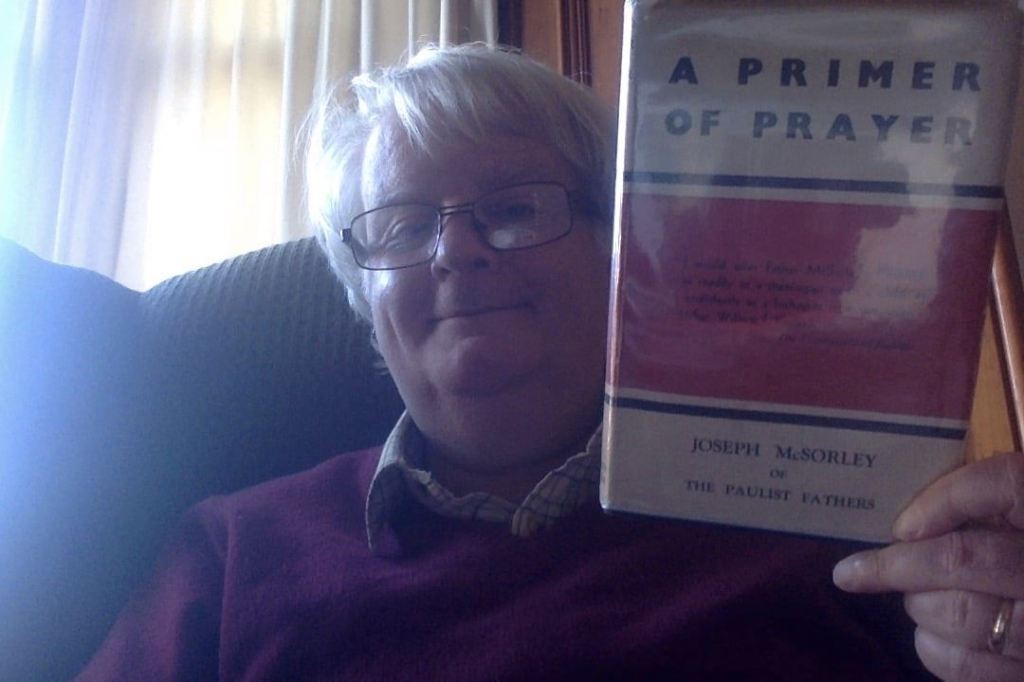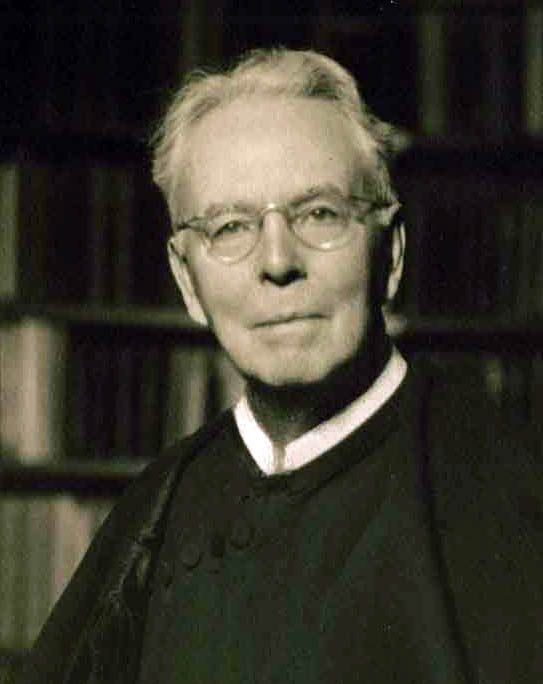I treasure my lovely and worn by use 1935 UK edition of the Paulist Father and scholar Fr. Joseph McSorley’s “A Primer of Prayer.” Fr McSorley, who lived from 1874-1963 was a historian, theologian and pastor, and among other things an expert on the rich tradition of devotion to the Holy Spirit in 19th century American Catholicism, the teachings of the 18th century French Jesuit mystic Pierre de Caussade on Abandonment to the Divine Will, and also was confessor and spiritual advisor to Dorothy Day. He had the ability to express the most sublime things in disarming, everyday language. This book is available very inexpensively online used for purchase, and I recommend it highly to help you begin or deepen your journey, wherever you are at.

After saying how we should approach God in familiar love and friendship, he then says:
“Take for example, such questions as ‘How shall I converse with God?’ Why, of course, simply and naturally as I talk to my mother. For, in the back of my mind, there hovers an awareness that HIs love of me surpasses even hers: that to Him I owe all I possess; that on His generosity my whole happiness depends; that being truly my Father, He delights to have me tell Him whatever is on my mind, or in my heart,—joys and sorrow, hopes and failures, temptations, troubles, plans, resolutions.”
“If I thrust things resolutely aside, there at my right hand, and at my left, I always find Him waiting to listen, ready to answer.”
We are all beginners, everyday.

Fr McSorley


